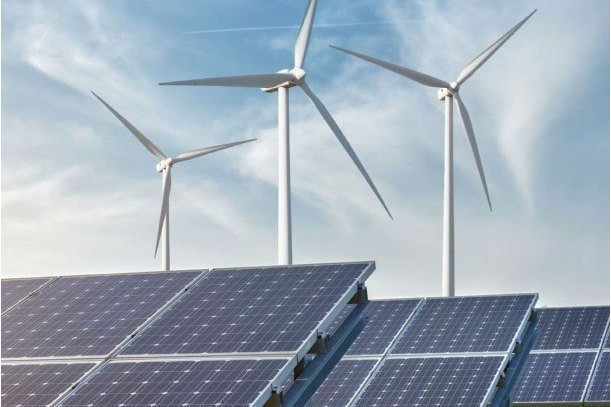Latest News
Renewable energy increases competitiveness despite cost inflation

News Highlight
IRENA’s report concludes that expected high fossil fuel prices will cement the structural shift that has seen renewable power generation become the least cost source of new generation.
The fossil fuel price crisis has accelerated the competitiveness of renewable power, says a new report by International Renewable Energy Agency (IRENA).
According to the report, around 86 percent (187 gigawatts) of all the newly commissioned renewable capacity in 2022 had lower costs than fossil fuel-fired electricity.
Renewable Power Generation Costs in 2022, published on 29 august 2023, by IRENA, shows that the renewable power added in 2022 reduced the fuel bill of the electricity sector worldwide. New capacity added since 2000 reduced the electricity sector fuel bill in 2022 by at least $520 billion. In non-OECD countries, just the saving over the lifetime of new capacity additions in 2022 will reduce costs by up to $580 billion.
In addition to these direct cost savings, there would be substantial economic benefits from reducing CO2 emissions and local air pollutants. Without the deployment of renewables over the last two decades, the economic disruption from the fossil fuel price shock in 2022 would have been much worse and possibly beyond many governments ability to soften with public funding.
IRENA’s new report confirms the critical role that cost-competitive renewables play in addressing today’s energy and climate crises by accelerating the transition in line with the 1.5°C warming limit. Renewables represent vital planks in countries’ efforts to swiftly reduce, and eventually phase out, fossil fuels and limit the macroeconomic damage they cause in pursuit of net-zero emissions.
“IRENA sees 2022 as a veritable turning point in the deployment for renewables as its cost-competitiveness has never been greater despite the lingering commodity and equipment cost inflation around the world,” said IRENA’s Director-General Francesco La Camera. “The most affected regions by the historic price shock were remarkably resilient, in large part thanks to the massive increase of solar and wind in the last decade.”
He said that today, the business case for renewables is compelling, but the world must add 1000 GW of renewable power annually on average every year until 2030 to keep 1.5°C within reach, more than three times 2022 levels. The IRENA DG added that there is no time for a new energy system to evolve gradually as was the case for fossil fuels.
Commodity and equipment cost inflation in 2022 resulted in countries experiencing markedly different trends in costs in 2022, IRENA’s new report finds. However, at a global level, the weighted-average cost of electricity fell for utility-scale solar PV by 3 percent, for onshore wind by 5 percent, for concentrating solar power by 2 percent, for bioenergy by 13 percent and for geothermal by 22 percent.
Only the costs for offshore wind and hydropower increased by 2 percent and 18 percent respectively, due to the reduced share of China in offshore wind deployment in 2022 and cost overruns in a number of large hydropower projects.
For the last 13 to 15 years, renewable power generation costs from solar and wind power have been falling. Between 2010 and 2022, solar and wind power became cost-competitive with fossil fuels even without financial support. The global weighted average cost of electricity from solar PV fell by 89 percent to $0.049/kWh, almost one-third less than the cheapest fossil fuel globally. For onshore wind the fall was 69 percent to $0.033/kWh in 2022, slightly less than half that of the cheapest fossil fuel-fired option in 2022.
IRENA’s report concludes that expected high fossil fuel prices will cement the structural shift that has seen renewable power generation become the least cost source of new generation, even undercutting existing fossil fuel generators.
Renewables can protect consumers from fossil fuel price shocks, avoid physical supply shortages and enhance energy security, IRENA said.
Related News
Latest Blogs
- How Tinubu is ensuring equitable access to public services
- Nigeria’s economic reform faces new threats
- What Ould Tah’s tenure at BADEA reveals about his AfDB candidacy
- Implementation strategy crucial for the success of 12-4 education policy
- A senator’s suspension threatens the right of representation
Most Popular News
- Artificial intelligence can help to reduce youth unemployment in Africa – ...
- Tariffs stir inflation fears in US but offer targeted industry gains ...
- Nigeria records $6.83 billion balance of payments surplus in 2024
- Tinubu appoints new Board Chair, Group CEO for NNPC Limited
- CBN net reserve hits $23.1 billion, the highest in three years
- Soaring civil unrest worries companies and insurers, says Allianz









